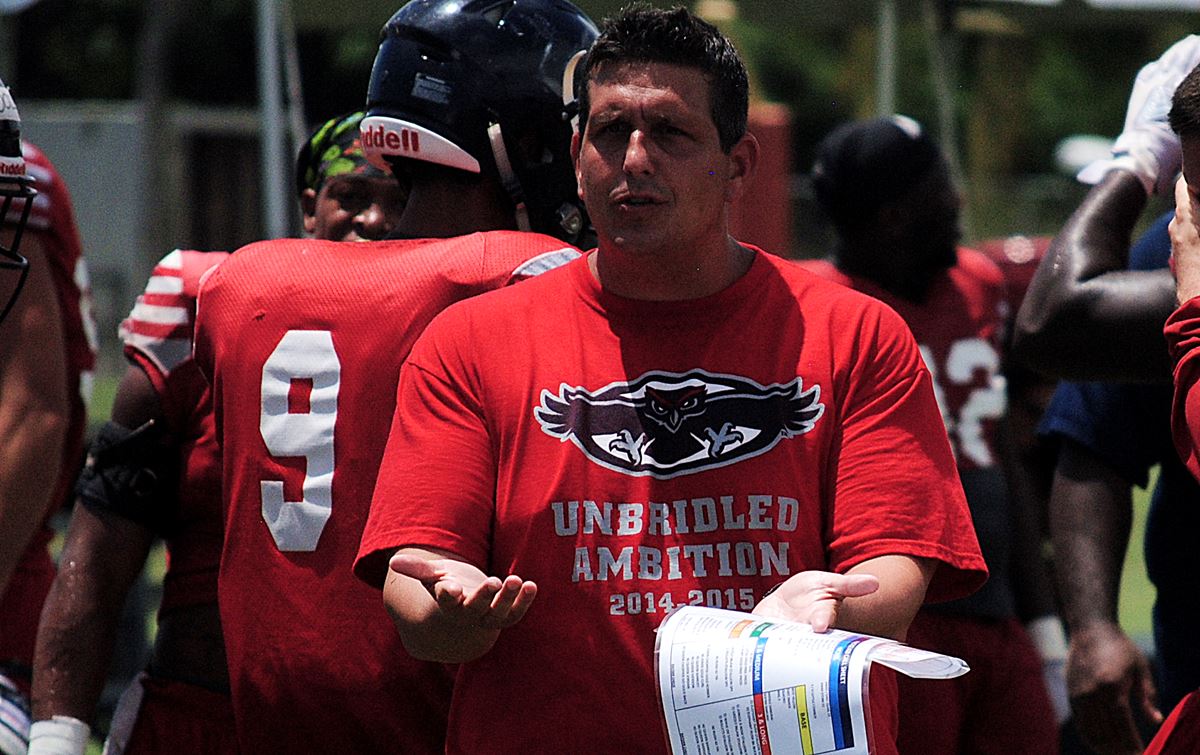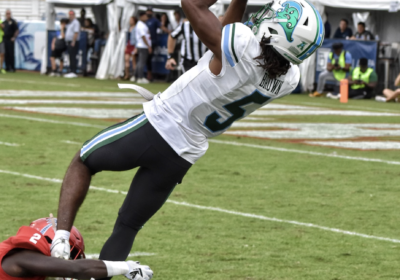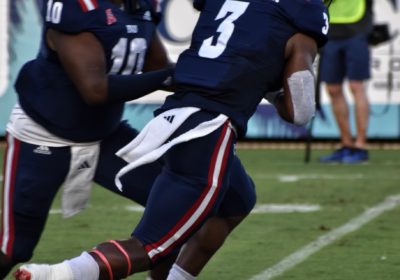[the_ad_group id=”632″]
BOCA RATON – In search of a way to spark his under-performing defense, first year offensive coordinator Tony Pecoraro decided to get closer to the action.
After coaching the first four games of the season from the press box, Pecoraro moved to the sideline two games ago as Conference USA play began, coaching from the same spot the coach he replaced, Chris Kiffin, did last season.
“It was just the thought that we weren’t playing really well,” coach Lane Kiffin said. “They’re used to having their coordinator down. The year before Chris was downstairs. Just trying to find anything to help us play better.”
Pecoraro’s move returned a sense of comfort to senior safety Jalen Young, who became accustomed over his four years to talking directly with the defensive coordinator on the sideline when he came off the field,
“With him being on the sideline, honestly, it just feels better,” Young said.
The Owls lost Pecoraro’s first game on the sideline 25-24 to MTSU, but that represented their best defensive performance of the season.
FAU surrendered 33 points in a victory Old Dominion two weekends ago – the Owls most recent game.
“When he made that decision to come down, I was like, yeah. I feel like we needed it,” said linebacker Rashad Smith, FAU’s leading tackler. “I feel like it was good for us.”
When calling the game from the booth, Pecoraro would have to relay his comments, advice and criticism to players on the field via a defensive representative – often defensive graduate assistant Rip Rowen.
Coaching from the sideline allows Pecoraro to have those conversations directly with players, letting them know how to correct mistakes and his expectations for upcoming calls.
“I look at him as head of everybody – alpha’s on the filed so you know everybody’s locked in,” defensive back James Pierre said. “As long as we’re playing fast, doing the right stuff, he’s pretty laid back, but once you’re doing the wrong stuff, he’s a fired-up guy.”
FAU surrendered an average of 43.5 points through the season’s first four games, with two of those opponents, No. 9 Oklahoma and No. 10 UCF, fielding top offenses, nationally.
Since joining his players on the sidelines, Pecoraro’s defense allowed an average of 29 points per game – high, but an improvement.
“It just keeps everybody grounded as a defense because the defensive coordinator’s there,” safety Ocie Rose said. “He knows what everyone on the field has to do so you can actually get some hands on in an easier and quicker way with the defensive coordinator being downstairs.”
There are disadvantages to having coordinators call games from field level. Down low, they can’t see the entire field, limiting their ability to discern what’s the cause of problems that occur during plays. It’s also not as easy to get a look at offensive formations, though it can be easier to make pre-snap adjustments.
Offensive coordinator Charlie Weis calls plays from the coaches box, and when he served as a coordinator at previous spots Kiffin spent most of his time in the box, moving down to the field while at Alabama in compliance with coach Nick Saban’s request.
“I’ve always been up until coach Saban put me down after our first spring there, and so I get it,” Kiffin said. “Especially in college, when these kids have someone in front of them telling them exactly what is going to happen, what’s going to come next, what’s going to get called, there’s a lot to that – especially at certain positions.”







Recent Comments